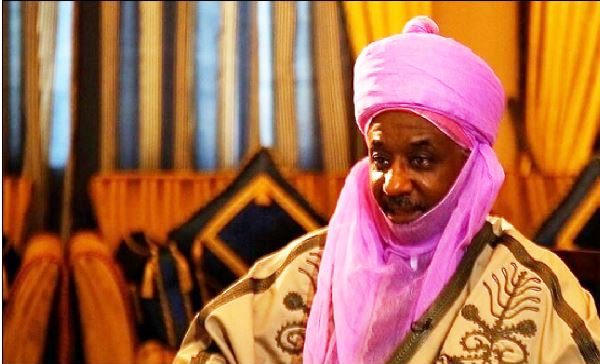The Emir of Kano, Malam Muhammadu Sanusi, has cautioned journalists, especially those in the print media, against sensationalising reports “just to make sales”.
“Journalists must avoid sensationalism that buries the real message of the news maker and cast headlines that could cause conflicts.
“A lot of resourceful persons keep mute because they fear that what they say will be twisted into something different,” Sanusi said on Tuesday in Kano.
The emir gave the advice when members of the correspondents chapel of the Nigeria Union of Journalists (NUJ), Kano chapter, paid him a courtesy visit.
“The country is facing a lot of social and economic problems for which the government needs to be advised on ways to resolve them. That should dominate the news reports instead of the negative aspects of the news,” he said.
He reminded journalists that they were also Nigerians facing the same social and economic problems in the country, urging them to be concerned on how to resolve them.
He, however, praised their commitment to news reporting and called on them to continue along that path.
“Your job as newsmen is a very important one. But there are a lot of corrections to be made. This is because you are tasked with ensuring that correct news is reported, though you have to also sell your newspapers.
“Our problem with the newspapers is that one would speak for 15, 20, 30 minutes, but when you want to report, you pick on a single sentence or statement that will attract sales for the paper and publish.
“While publishing it, it is not considered whether such a statement is in consonance with the context in which it was made.
“There are times when the government will be given important advices on issues concerning the well-being of the citizens, but such advices are not carried by the papers.
“Instead, it is statements that have to do with criticisms and controversy that are reported in order to make sales.
“In the end, the useful advice will be buried and the public will not understand the actual things that were said and will be pushed into unnecessary controversies.
“More so, in the course of filing such reports, it is not considered whether it is fair to the person being quoted. Such reports set a section of the public unnecessarily against the person being reported.
“When this happens, one is forced to go into making explanations to clear the air. In the past, only unpopular newspapers were involved in this, but now it is everywhere,” he fumed.
He urged newsmen to correct that attitude “in the interest of the public and the development of the country”.
“Statements on peaceful coexistence, economy, poverty and social life of the people are made specifically to bring about corrections. But when newspapers sensationalise these views to make sales, the important message is lost.
“There are a lot of people that have a lot of good and useful things to contribute, but they are forced to remain silent by this style of reporting,”







